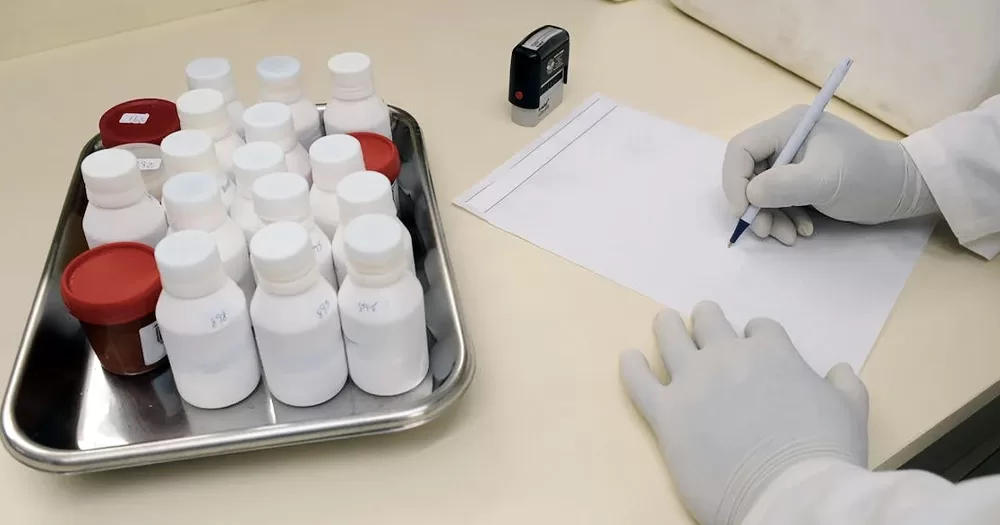According to the latest data published by the Health Protection Surveillance Centre (HPSC), the number of gonorrhoea cases registered in Ireland in 2023 has increased by 70% compared to 2022. Last year saw an increase in several sexually transmitted infection (STI) cases, including chlamydia, herpes and syphilis, however, the biggest rise was in gonorrhoea cases.
On January 5, the HPSC published updated data on HIV and STI cases reported in Ireland, showing an annual total of 6,828 cases of gonorrhoea detected in 2023 compared to only 3,976 in the previous year.
The STI was most commonly reported among people aged 20-24 years (1,941 cases), 25-29 (1,301 cases) and 30-34 (1,166 cases). Moreover, most of the gonorrhoea cases were detected among men (5,253 cases), in particular among gay, bisexual and other men who have sex with men.
Cases of chlamydia were also on the rise, with 13,718 cases detected in 2023 compared to 10,839 in the previous year. The increase in STI cases seems to be consistent with Europe-wide figures, with the most updated data published in 2021 by the European Centre for Disease Prevention and Control revealing a “concerning rise” across the continent.
We have published our weekly report on HIV and STI cases. This report now contains data on mpox. In week 51 2023, we are reporting:
?496 cases of chlamydia
?223 cases of gonorrhoea
?22 cases of HIV
?26 cases of syphilisRead the full report here?https://t.co/rNtSUfOAJy pic.twitter.com/5dqX8nXXiA
— HSE Health Protection Surveillance Centre (HPSC) (@hpscireland) January 3, 2024
While in 2021 a total of 46,728 cases of gonorrhoea were confirmed in Europe – a rate of 13.7 per 100,000 population – in Ireland there were 2,108 confirmed cases, making it a rate of 42.1 per 100,000 population. The country now has one of the highest incidence rates of gonorrhoea in Europe.
Speaking to The Journal, a spokesperson for the HSE said that such a spike can be explained by high-risk behaviours like “not using condoms consistently, particularly when changing partners, are relatively common”.
However, the main reason behind the spike is linked to increased access to testing, including the availability of a national STI home-testing service. After being launched in 2021, the testing service was expanded in October 2022 and now delivers about 10,000 test kits to Irish households every month.
Moreover, the HSE spokesperson noted that the sharp increase in gonorrhoea cases in Ireland is consistent with the overall rise in STI cases after the Covid-19 pandemic. “Before the pandemic, many STIs were increasing and the figures in 2023 to date reflect ongoing increasing trends evident in advance of the Covid-19 pandemic which resumed in 2022,” the spokesperson said.
In contrast, Ireland registered a massive decrease in 2023 reported cases of mpox in comparison to the previous year. In 2022, 227 cases of mpox were confirmed in Ireland, while the number dropped down to only 15 in 2023.
The nationwide and community-led information campaign led by MPOWER and Man2Man was instrumental in reducing the infections. “Risk communication and community engagement in the key affected population (gay bisexual and other men who have sex with men) have contributed to raising awareness of symptoms, what to do if symptomatic and advising about the benefits of vaccination and how to access it for gbMSM at risk of Mpox infection,” the spokesperson said.
© 2024 GCN (Gay Community News). All rights reserved.
Support GCN
GCN is a free, vital resource for Ireland’s LGBTQ+ community since 1988.
GCN is a trading name of National LGBT Federation CLG, a registered charity - Charity Number: 20034580.
GCN relies on the generous support of the community and allies to sustain the crucial work that we do. Producing GCN is costly, and, in an industry which has been hugely impacted by rising costs, we need your support to help sustain and grow this vital resource.
Supporting GCN for as little as €1.99 per month will help us continue our work as Ireland’s free, independent LGBTQ+ media.
